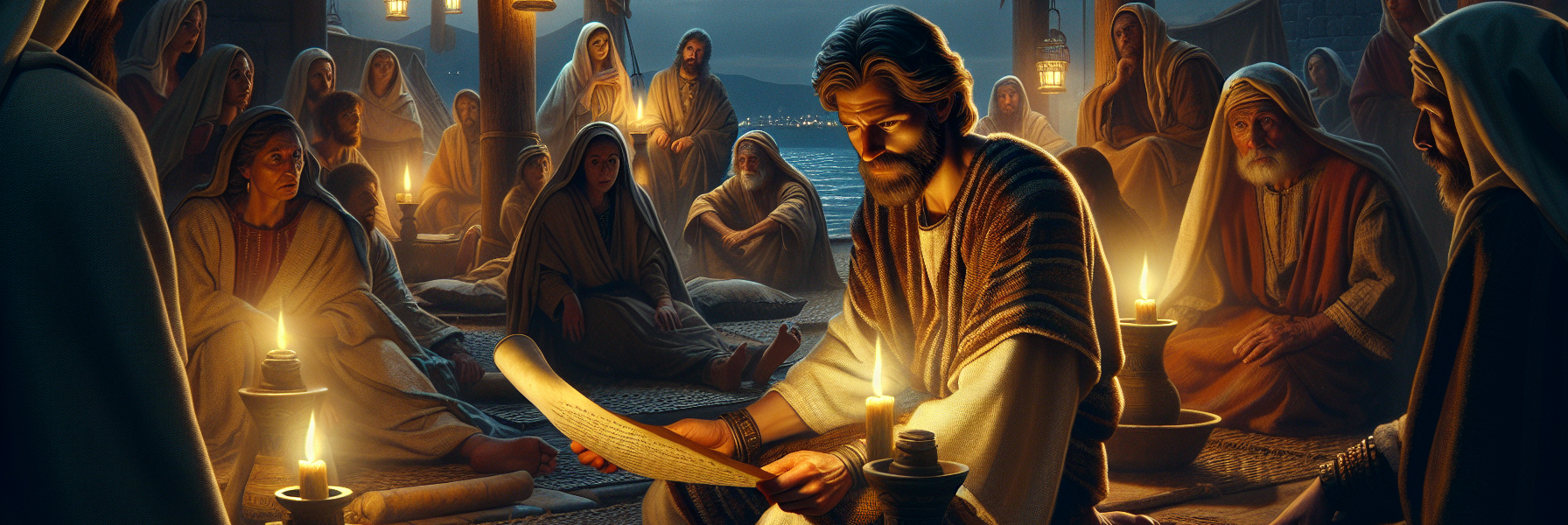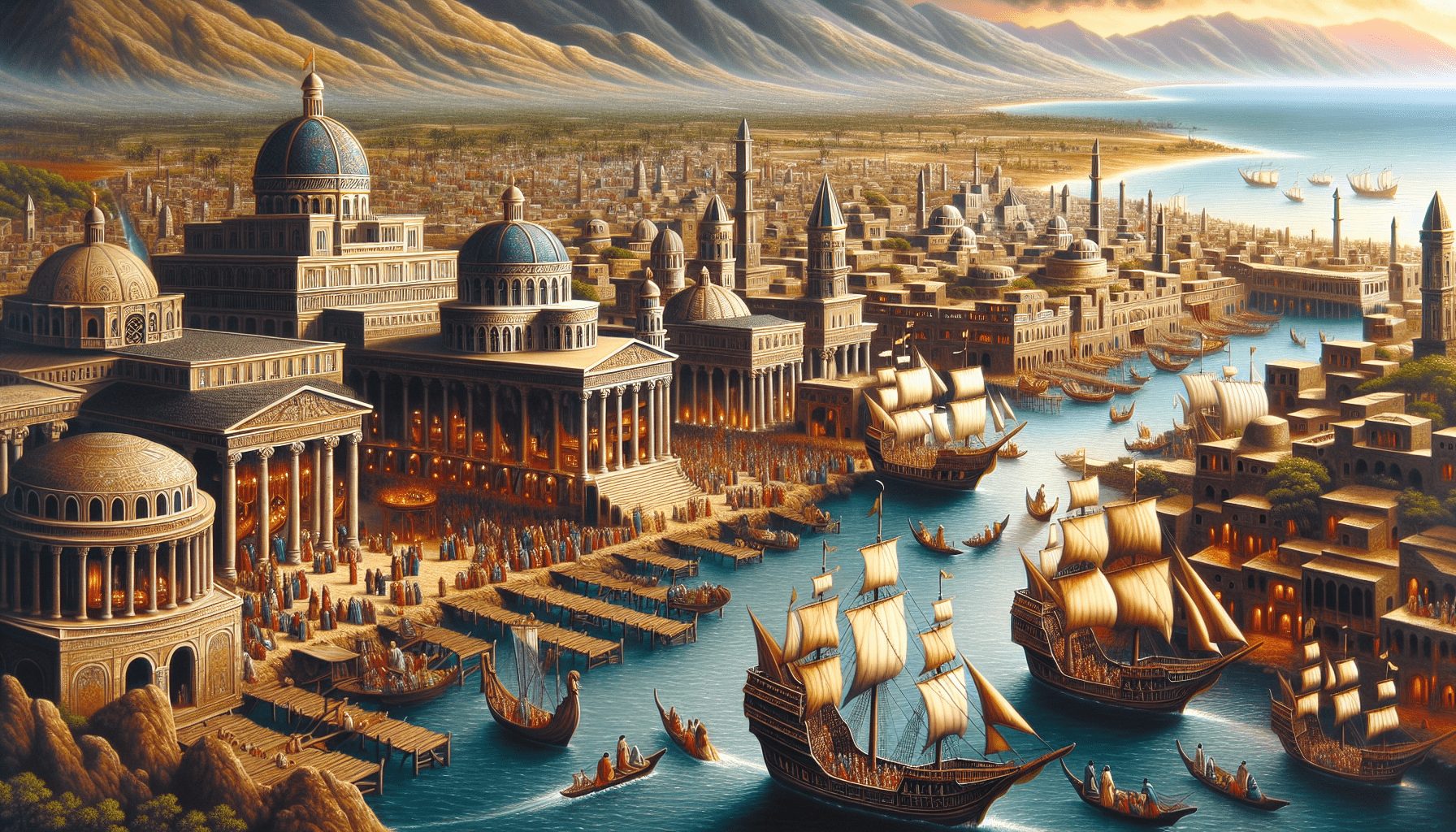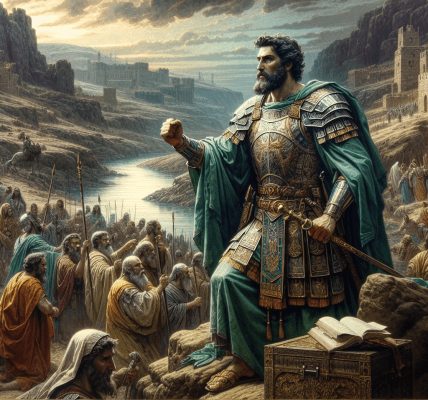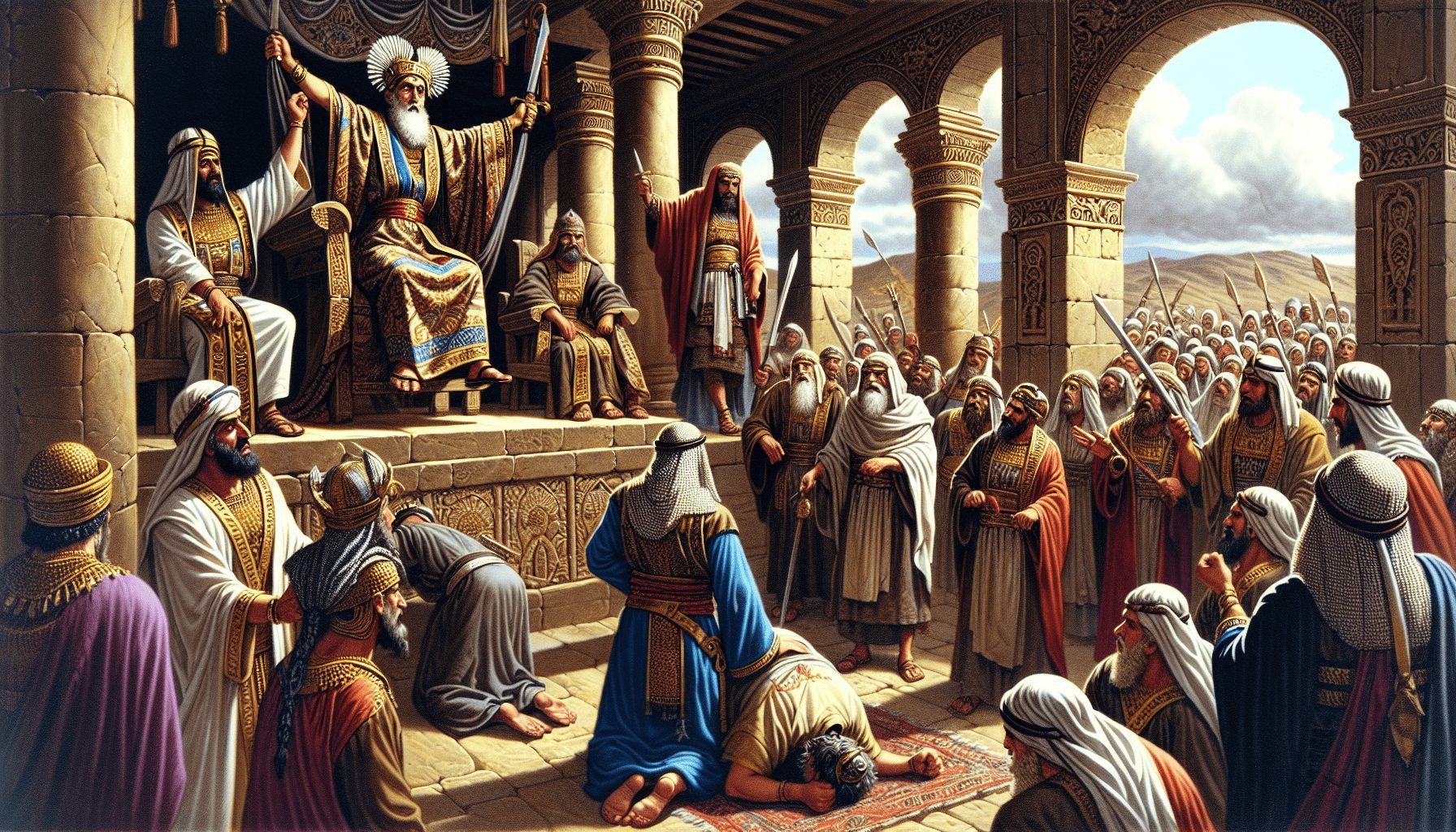**The Living Stones: A Story of Faith and Identity**
In the bustling port city of Pontus, nestled along the Black Sea, a small but fervent group of believers gathered in the dimly lit home of Lydia, a wealthy merchant who had come to faith through the preaching of Peter years before. The air was thick with the scent of burning oil lamps and the salty breeze drifting through the open windows. The believers—former idolaters, slaves, and even a few Roman soldiers—sat on woven mats, their faces eager as they awaited the reading of the letter that had arrived from the apostle Peter.
A man named Marcus, a former stonecutter with calloused hands, unrolled the parchment carefully and began to read:
*”Therefore, rid yourselves of all malice and all deceit, hypocrisy, envy, and slander of every kind. Like newborn babies, crave pure spiritual milk, so that by it you may grow up in your salvation, now that you have tasted that the Lord is good.”*
Little Miriam, a young girl rescued from temple prostitution, listened intently, her wide eyes reflecting the flickering lamplight. She had once known only hunger—for bread, for love, for escape—but now she felt a different kind of hunger stirring within her. The words of Peter spoke of a nourishment that went deeper than food, a sustenance that satisfied the soul.
Marcus continued, his voice steady:
*”As you come to Him, the living Stone—rejected by humans but chosen by God and precious to Him—you also, like living stones, are being built into a spiritual house to be a holy priesthood, offering spiritual sacrifices acceptable to God through Jesus Christ.”*
Lydia’s fingers traced the smooth marble of the table beside her, a remnant of her former wealth. She remembered how the temples of Pontus were adorned with polished stones, each one meticulously placed to honor dead gods. But Peter’s words spoke of something greater—a temple not made by human hands, where each believer was a living stone, shaped and set by the Master Builder Himself.
In the corner, a burly man named Rufus, once a gladiator, clenched his fists. He had spent years fighting for the crowd’s approval, only to be discarded when his strength waned. The words *”rejected by humans but chosen by God”* struck him like a blow. He was no longer worthless. He had been selected by the King of Heaven for a purpose greater than the arena.
Marcus read on:
*”But you are a chosen people, a royal priesthood, a holy nation, God’s special possession, that you may declare the praises of Him who called you out of darkness into His wonderful light.”*
A murmur of awe passed through the room. These were not lofty titles reserved for the elite—they were declarations over fishermen, slaves, and outcasts. Theodora, a former priestess of Aphrodite, felt tears spill down her cheeks. She had once led others into darkness, but now she was part of a holy nation, called to proclaim the light she had found in Christ.
Outside, the sounds of the city continued—the shouts of merchants, the clatter of carts, the distant roar of the waves. But within Lydia’s home, the believers sat in reverent silence, the weight of Peter’s words settling upon them.
Marcus reached the final exhortation:
*”Dear friends, I urge you, as foreigners and exiles, to abstain from sinful desires, which wage war against your soul. Live such good lives among the pagans that, though they accuse you of doing wrong, they may see your good deeds and glorify God on the day He visits us.”*
The group bowed their heads in prayer, each heart stirred with fresh resolve. They were living stones, not meant to stand alone but to be joined together in Christ. They were priests, not in ornate robes but in humble service. And though they were strangers in this world, they carried a hope that would outlast every empire.
As the meeting ended, the believers embraced one another, their faces alight with quiet joy. The night was dark, but within them burned a light no shadow could extinguish.




